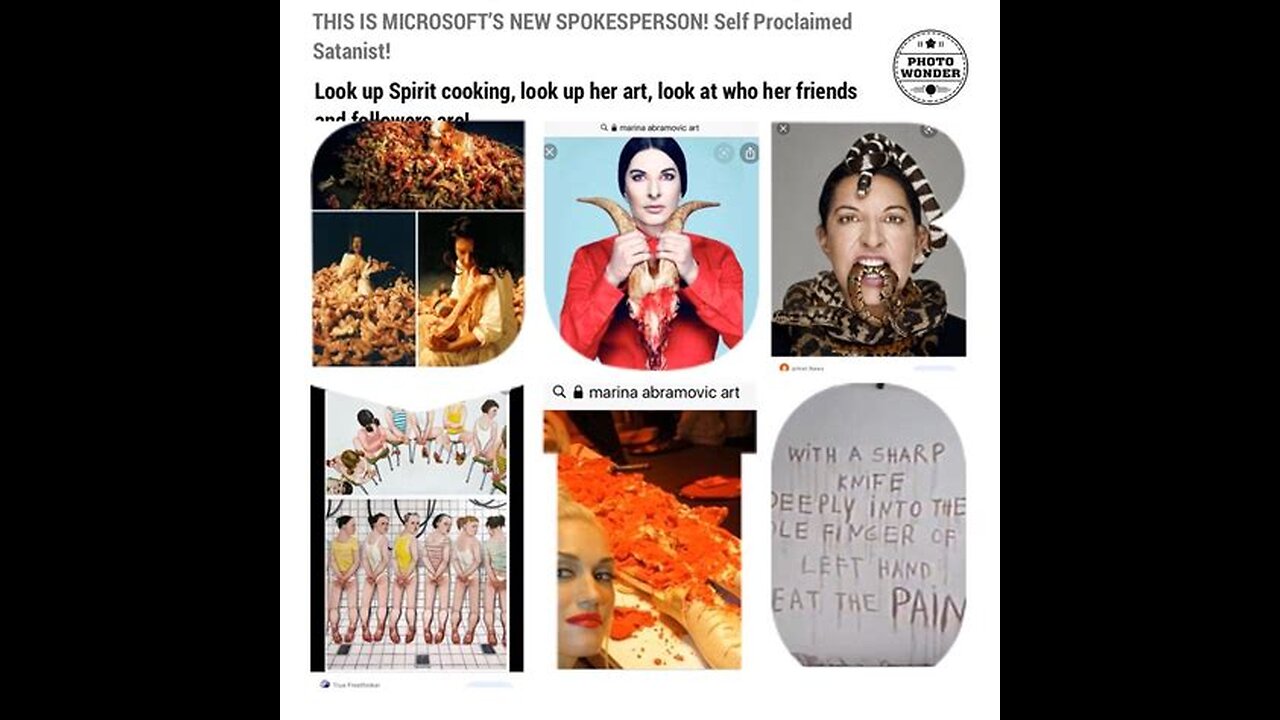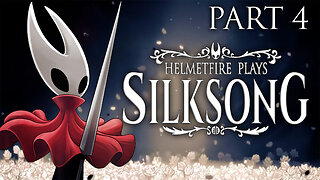Premium Only Content

The Veil of Shadows: Rosanne Barr, Tucker Carlson, and the Elite Allegations That Refuse to Die
Introduction: A Dark Allegory or Hidden Truth?
In a jaw-dropping interview with Tucker Carlson, Rosanne Barr pulled no punches, diving headfirst into allegations that feel more like a plot ripped from dystopian fiction than reality. Claims of “vampiric elites,” ritualistic practices, and a hidden underbelly of exploitation within Hollywood have left viewers polarized. For many, it’s easy to dismiss such ideas as fringe paranoia—but for others, it’s a reflection of the growing belief that the world’s most powerful figures hide their true intentions behind a meticulously maintained façade.
This isn’t just about shocking statements or sensational headlines. It’s a window into the intersection of conspiracy, power, and the public’s deepening distrust of elite institutions. Whether Barr’s claims are the stuff of legend or a grim revelation of truths we dare not face, they demand deeper scrutiny. Is this the unmasking of an ancient, ongoing deception, or are we witnessing the dangerous fusion of disillusionment and imagination?
The Allegations: “Full-On Vampires” and Rituals in High Places
1. The Vampiric Allegory
• Barr’s characterization of certain elites as “full-on vampires” isn’t simply a shocking metaphor. It aligns with historical myths and modern conspiracies that paint the powerful as parasitic entities, feeding on the innocent to maintain their influence.
• Historically, rulers and aristocrats were accused of drinking blood or consuming the life force of others, a symbolic representation of how they sustained their dominance over the masses.
2. The Dark Side of Hollywood
• Barr, a Hollywood insider with decades of experience, claims to have witnessed firsthand the whispers and shadows of an exploitative culture. Her references to meeting survivors of “those cults” in mental institutions speak to a hidden undercurrent of trauma within the entertainment industry.
• Allegations of systemic abuse in Hollywood are not new, from the #MeToo revelations to darker claims of child exploitation and occult practices. These narratives persist, suggesting more than mere paranoia.
3. Prayer and the Awakening
• Barr’s plea for divine intervention reflects a belief that the spiritual realm is entwined with this alleged hidden battle. Her call for Americans to “wake up” before the next election is not merely political—it’s a rallying cry for a collective consciousness to pierce the veil of deceit she perceives.
Historical Context: The Origins of Elite Conspiracy Theories
1. Blood Myths in History
• Allegations of blood rituals have deep roots in history. From Vlad the Impaler’s legend inspiring Dracula to the medieval accusations of “blood libel” against marginalized groups, these stories have been used to explain power dynamics and scapegoat perceived outsiders.
• In modern times, these narratives have been repurposed to target elites, particularly those in entertainment and politics, as symbols of a disconnected and exploitative ruling class.
2. The Hollywood Machine
• The entertainment industry has long been a focal point for conspiracy theories. As a realm where fame, wealth, and influence intersect, Hollywood is often portrayed as a microcosm of elite corruption.
• Allegations range from the exploitation of young talent to secret societies operating behind the scenes. Barr’s claims amplify these suspicions, adding a layer of ritualistic horror to an already tarnished image.
3. The Rise of Contemporary Conspiracies
• In recent years, conspiracy theories like Pizzagate and QAnon have gained traction, feeding on public discontent and mistrust of institutions. These theories often allege the existence of elite cabals engaging in heinous acts for power and pleasure.
• Barr’s statements fit into this broader narrative, suggesting that the very institutions meant to entertain and inform are complicit in a larger, darker agenda.
Why Do These Allegations Persist?
1. The Psychology of Conspiracy Belief
• Conspiracies thrive in times of societal uncertainty and discontent. When traditional systems of power—governments, media, corporations—fail to inspire trust, people turn to alternative explanations.
• The concept of vampiric elites resonates because it provides a tangible enemy, a narrative to explain why the world feels increasingly unjust.
2. The Grain of Truth
• While many conspiracy theories are exaggerated or unfounded, they often stem from real abuses of power. Historical events like Watergate, COINTELPRO, and Epstein’s connections to powerful figures demonstrate that secrecy and corruption are not mere fantasies.
• This “grain of truth” fuels the belief that if some dark conspiracies are real, others might be as well.
3. Cultural Archetypes
• The imagery of vampires and cults taps into deeply ingrained archetypes of fear and exploitation. These symbols transcend individual claims, resonating on a primal level with the collective subconscious.
The Implications: What If It’s True?
1. The Undermining of Institutions
• If allegations of systemic abuse and ritualistic practices were proven true, it would shatter public trust in elite institutions. Hollywood, politics, and even religious organizations would face an unprecedented reckoning.
• The resulting upheaval could lead to widespread disillusionment, but also an opportunity to rebuild systems with greater transparency and accountability.
2. Spiritual Warfare or Political Strategy?
• Barr’s emphasis on spiritual awakening suggests a broader framing of these allegations as a battle between good and evil. Whether viewed through a religious or secular lens, this narrative has the potential to galvanize action, particularly in the political arena.
• However, it also risks polarizing society further, deepening divides between those who see these claims as truths and those who dismiss them as dangerous rhetoric.
3. A New Era of Accountability?
• If nothing else, the persistence of these narratives highlights a public hunger for accountability and justice. Even in the absence of hard evidence, the demand for answers reflects a deeper desire to confront corruption and exploitation wherever they may exist.
Conclusion: A Call to Question Reality
Rosanne Barr’s interview with Tucker Carlson may seem like the ramblings of a fringe voice, but it echoes themes that have captivated human imagination for centuries. Her claims, as shocking as they are, force us to confront uncomfortable questions:
• How much do we truly know about the powerful figures who shape our world?
• Are these allegations purely fictional, or do they point to hidden truths we’ve been conditioned to ignore?
• And most importantly, what does it say about our society that these narratives resonate so deeply with so many?
The answers lie not in dismissing such claims outright, but in examining the systems that allow such suspicions to flourish. Whether or not Barr’s vampires exist, the fear they represent is real—and it demands our attention.
As the line between reality and fiction blurs, one thing is certain: the shadows are never as empty as they seem.
-
 5:54
5:54
FragmentsOfTruth
10 hours ago🌍 Believe It or Not: Why Water, Gas, and Physics Break the Ball Earth
972 -
 LIVE
LIVE
CHiLi XDD
4 hours agoTekken Fight Night
195 watching -
 LIVE
LIVE
ItsLancOfficial
10 hours agoFREAKY FRIDAY-GETTING FRIED-WELP! #TOTS
105 watching -
 1:09:11
1:09:11
Sarah Westall
5 hours agoRead the Signs: Are We Already Operating in a New Financial System? w/ Andy Schectman
27.6K4 -
 1:32:53
1:32:53
Flyover Conservatives
9 hours agoRicky Schroder Exposes How Hollywood Planted Him as a Child Star | FOC Show
31.3K5 -
 LIVE
LIVE
JahBlessCreates
3 hours ago🎉 TEKKEN TING, and maybe some music...
231 watching -
 LIVE
LIVE
GritsGG
4 hours agoTop 250 Ranked Grind! Dubulars!🫡
45 watching -
 LIVE
LIVE
StuffCentral
3 hours agoStar Stuffy
6 watching -
 6:02
6:02
Blackstone Griddles
5 hours agoPrime Rib Brisket Burgers on the Blackstone Griddle
9.38K2 -
 LIVE
LIVE
HELMETFIRE
3 hours ago🟢HELMETFIRE PLAYS: Silksong Part 4🟢
33 watching